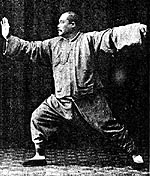The Health Benefits of Tai Chi

Gentle, graceful, and flowing, tai chi is meditation in motion. For hundreds of years, this soft martial art — the name means "supreme ultimate" in Mandarin — has nurtured a discipline of internal strength and outward calm, spreading in slow waves from China to the world.
Western science recognizes the following benefits of practicing tai chi, states the website Taichiacademy.com: "Increased oxygen uptake and utilization (more efficient breathing), reduced blood pressure, slower declines in cardiovascular power, increased bone density, increased strength and range of motion of joints, greater leg strength, knee strength, and flexibility, reduced levels of stress hormones during and after practice, improved immune function, and heightened mood states."
According to the Mayo Clinic, tai chi can also help to
- Reduce stress
- Increase energy, stamina and agility
- Reduce anxiety and depression
- Improve balance and coordination
- Improve sleep quality, such as staying asleep longer at night and feeling more alert during the day
- Slow bone loss in women after menopause and to
- Relieve chronic pain.
Tai chi has more than 100 possible movements and positions. You can find several that you like and stick with those, or explore the full range. The intensity of tai chi varies somewhat depending on the form or style practiced. Some forms of tai chi are more fast-paced than others, for instance. However, most forms are gentle and suitable for everyone. And they all include rhythmic patterns of movement that are coordinated with breathing.
|